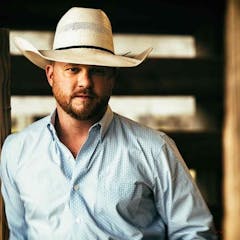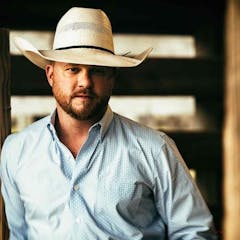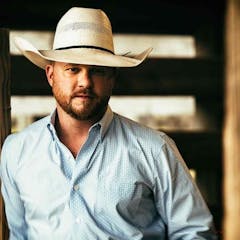
Kip Moore
Country
Upcoming Events
Friday, March 6
Saturday, March 7
Saturday, March 28
Friday, June 12
Saturday, July 18
Saturday, July 25
Saturday, August 8
Thursday, August 20
Saturday, August 22
Thursday, September 10
Details
Description
Singer-songwriter Kip Moore combines a raw and rustic voice with compelling lyrics of honesty to create a unique sound that’s simultaneously hypnotic and edgy. His voice is weathered by life’s detours and disappointments and strengthened by his dreams and determination. His music is infused with relentless intensity, both of passion and frustration.
His music powerfully captures some of the contradictions that he grapples with personally. Although he’s from a large family and enjoys musical collaborations and performing onstage, he’s an introvert who is often more comfortable being alone. “There’s a combativeness to the music too, a fight within,” he says. “With ‘Faith When I Fall,’ I know how bad I need that spiritual realm, but yet I find myself on this other end a lot of times.”
Despite its edge, his music remains desperately optimistic. “I am hoping for what I have yet to become,” he says. “I feel like it’s hopeful for what I’ve yet reached, how I look forward to feeling, but I haven’t gotten there yet.
“I have truly lived my music to a sense, even the milestones I haven’t reached yet,” he says. “I have been in those moments. I’ve been at those crossroads with a girl: ‘Are we going to take that next step?’ I look forward to taking that next step, but I haven’t wanted to yet. I look forward to being ready for that.”
He was born in Tifton, near the Florida line, and was one of six children, the youngest boy who had three younger sisters. “You had to make your own fun, for sure,” he says of Tifton. “I had a lot of time for daydreaming. It was a great town, but I dreamed about getting out. I do enjoy going back now.”
Weekends were often spent driving to the beach with his father for fishing expeditions. “He would play a lot of Jackson Browne, Willie Nelson, Bob Seger, Tom Petty and Bruce Springsteen,” he says. “As early as I can remember, I always gravitated toward lyrics. Even when I hadn’t lived enough to understand then, they still shaped me. “
During high school, he secretly began playing his brother’s guitar because he was intimidated by the talent of his mother and older brother. “I would play when nobody was around, just figuring out stuff, watching his hands and trying to do the same thing.”
He played point guard for Wallace State’s basketball team and also played on its golf team in Hanceville, Ala., for two years and then transferred to Valdolsta State University on a golf scholarship. He wrote songs daily and joined a band that performed throughout the South, providing him with all of his income. “I was one of those kinds who didn’t know what I wanted to do with my life,” he says. “I didn’t know music was an option. Maybe it was one of those things where I didn’t quite believe in myself enough.”
Although he devoted every free moment to music during college, his parents still didn’t know about his musical activities. “They were all shocked when they found out about it because they didn’t know I could sing or play,” he says.
After graduation and a short stint as a bartender on St. Simon’s Island, he moved to Hawaii on a whim with just a backpack, a surfboard and a friend. They slept on an airport bench the first night and then lucked into a hut that was $50 a month. They would walk or hitchhike the mile to the beach daily. After six months of this tropical paradise, Kip thought he had found his permanent home until his friend encouraged him to pursue songwriting as a living.
He drove to Nashville on Jan. 1, 2004 in an old black Nissan truck that contained one bag and his guitar. He immersed himself in the songwriting community, observing songwriters’ rounds for two years and honing his craft before gaining the confidence to join in. After four years of performing locally, he caught the attention of Creative Artist Agency’s Mark Dennis, who called Universal Music Group Nashville’s Joe Fisher. Not only did Joe’s encounter lead to his record deal with MCA Nashville, but it also brought about his introduction to songwriter Brett James, who produced Kip’s debut album.
When Kip plays shows, he’s often asked for advice by aspiring songwriters. “Everybody’s experience is different, but I do believe it has to be the only thing,” he says. “I don’t think it can be a gray line. Either you want it and there’s nothing else or it’s not going to happen.”
For instance, Kip was offered a sales position with an enticing salary, but it required working six days a week, leaving no time for creating music.
“It only took me a few minutes to decline it. It’s such a risk and it’s an alone feeling – you feel like you’re on an island by yourself – but it’s worth every single minute. Had I taken that job, I wouldn’t be sitting here today.”
Top Kip Moore Songs of All Time









